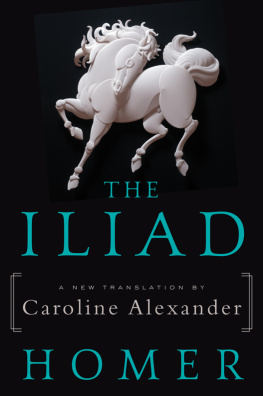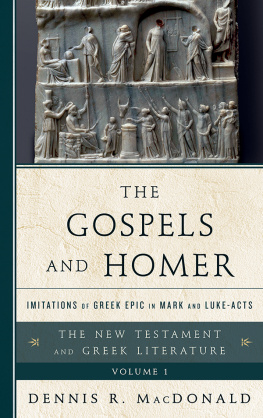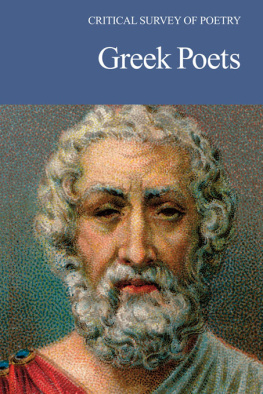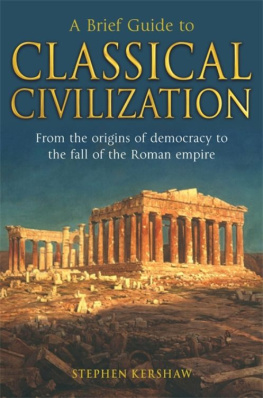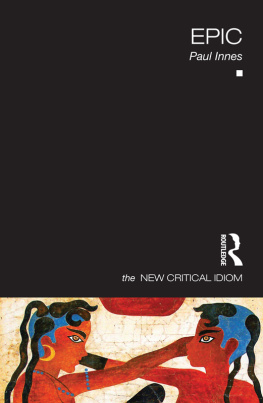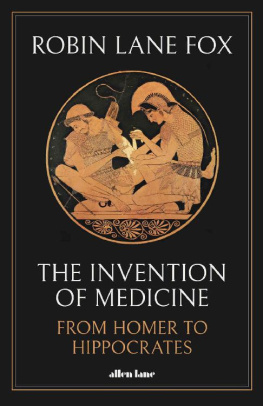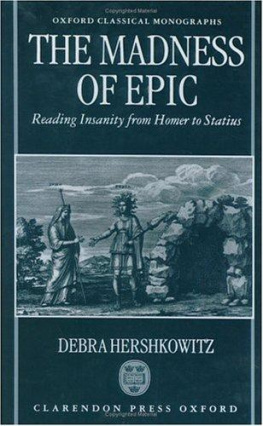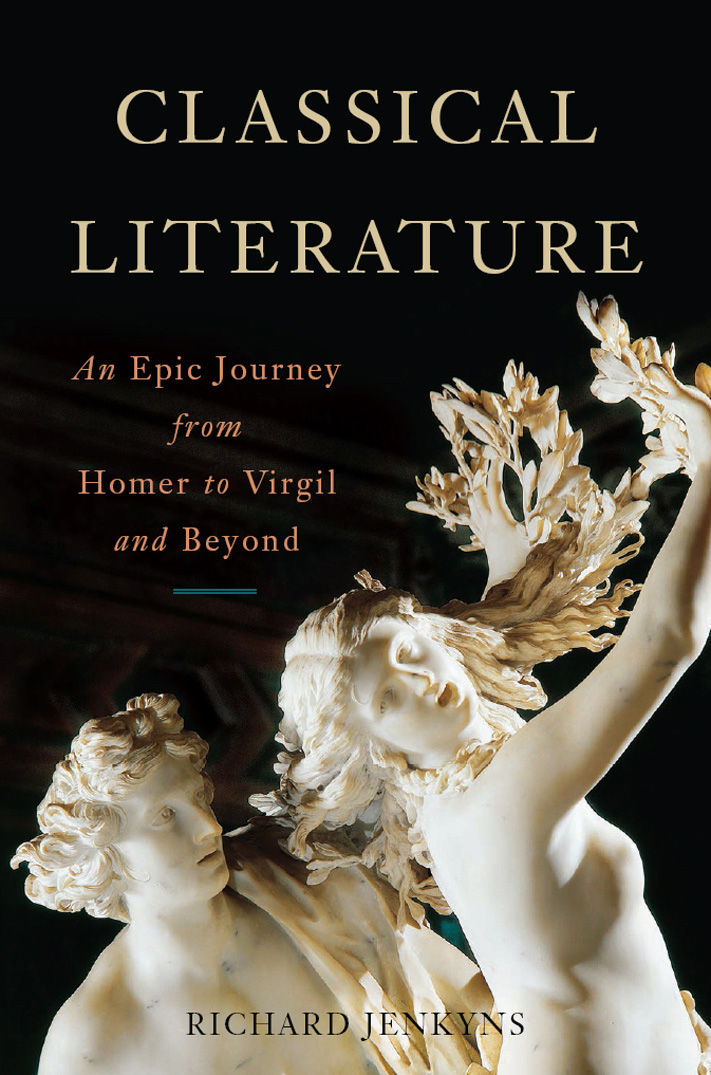

Copyright 2016 by Richard Jenkyns
Published by Basic Books,
A Member of the Perseus Books Group
All rights reserved. Printed in the United States of America. No part of this book may be reproduced in any manner whatsoever without written permission except in the case of brief quotations embodied in critical articles and reviews. For information, address Basic Books, 250 West 57th Street, 15th Floor, New York, NY 10107.
Books published by Basic Books are available at special discounts for bulk purchases in the United States by corporations, institutions, and other organizations. For more information, please contact the Special Markets Department at the Perseus Books Group, 2300 Chestnut Street, Suite 200, Philadelphia, PA 19103, or call (800) 810-4145, ext. 5000, or e-mail .
A CIP catalog record for this book is available from the Library of Congress.
LCCN: 2015953494
ISBN 978-0-465-09798-2 (e-book)
First published in the United Kingdom in 2015 by the Penguin Book Group
10 9 8 7 6 5 4 3 2 1
Table of Contents
Guide
CONTENTS
Warm thanks to Laura Stickney, who commissioned and edited this book, Kit Shepherd, who copy-edited it, and James Morwood, who read the whole of it in draft. The advice of all of them has improved it. Needless to say, it is also greatly indebted to what I have read, to those who have taught me, and to those whom I have taught in turn. I should also acknowledge that I have sometimes borrowed from myself: where I have written about a topic before, and could think of no better way of putting what I wanted to say, I have been content to adapt some old ideas and phrases. Faults and mistakes, old and new, are all my own work.
This book is about the literature of ancient Greece and Rome. So it is, among other things, a story an account of what Greek and Latin authors invented and imagined, of what they learned from one another, of how their literature grew and flowered and changed. It is a story of lasting importance, since western civilization was formed in classical antiquity by the Greeks, Romans and Jews, and in large part through what they thought and wrote. We need some appreciation of classical literature if we are fully to understand where our own culture came from and what it is.
But the subject is also compelling in itself. Classical literature includes some works that rank among the supreme achievements of the human mind. Here are brilliance, depth, originality, as well as a variety and daring which would surprise anyone who takes the word classical to imply marmoreal correctitude. Like all literatures at all times, classical literature also includes authors of lesser calibre, and they are part of the story too. However, I have supposed that readers are likely to want mainly two things: a reasonably full survey of the greatest authors, and a picture of the broad shape of literary history. I have tried to keep a balance between these two aims. Literature for my purposes means writing that has an aesthetic intent or value. Accordingly, works on science, medicine, engineering, grammar, geography and so on do not appear; I have also left out most of the minor historians. Plato is a literary master of the first order, but otherwise I have considered philosophy only insofar as it had literary consequences.
Begin at the beginning, said the King of Hearts, and go on till you come to the end: then stop. The first part of this command is easily obeyed, the second harder. To have included late antiquity, even were I qualified to do so, would have changed the balance of the book drastically. I have chosen to stop around AD 100, making an exception for the three great Latin writers active in the second century AD. Even so, a book covering two languages and a period of a thousand years must be selective. As it happens, a comprehensive and balanced account of classical literature is not possible, even in principle, because the bulk of it is lost, and we are dependent on the accidents of survival (a matter that I discuss more fully in the second chapter). But in any case, I have naturally chosen to give most space to those works and authors whom I find most inspiring. However, that has not been the only criterion: some writers are hard to discuss without a good deal of historical background, because what remains of them is fragmentary or problematic, or simply because they stand apart from the mainstream of literary history. For one or more of these reasons I have described some areas compactly; in particular, comedy and oratory. The subjects that I have judged to be most essential are Homer, Greek tragedy, the greatest historians, and Virgil and the Latin golden age.
Much in this book is probably not controversial, but some things are, and readers should be warned that it gives a personal view. Indeed, it could hardly be otherwise: literature, if it is any good, demands the readers response, and literary history must make judgements, if it is to be more than a list of facts. This book is both a narrative and a survey of some individual authors. Much of what the ancients wrote was never meant to be more than useful, and among more ambitious works the quality varies greatly. My foremost aim, however, has been to present the best of what the Greeks and Romans wrote, and to show, as well as I can, what makes it the best.
W RATH! EUROPEAN literature begins not with the whimper of infancy, but with a bang. For wrath is the first word of Homers Iliad. We do not in fact know that the Iliad is the earliest Greek poem that we have; the Greeks themselves debated whether Homer or Hesiod had the priority. But it was to be important to Greek life and culture for a thousand years and more that so commanding a masterpiece stood at the head of its literature. Naturally, such a work did not spring from nowhere; it is the summit of a submerged mountain, the culmination of a long poetic tradition about which we can know little.
The first civilization to arise on the mainland of Europe was the Mycenaean, named from Mycenae, its greatest city. It was at its peak in the middle of the second millennium BC, and the Iliad retains some memory of that time. The Mycenaeans spoke Greek and they knew the use of writing, although they may have employed it only for practical purposes, but with the decline of this culture writing disappeared, not to be introduced again until the eighth century. Until then, verse could only be composed in the poets head, for singing or recitation. Such must have been Homers ancestry but was there a Homer at all, or were the Iliad and the other Homeric epic, the Odyssey, the products of many authors? That question has been debated since the end of the eighteenth century.
The issue was transformed by the discovery, some eighty years ago, that these poems belong to an oral tradition. Any reader of Homer soon becomes aware that there is much repetition. In particular, phrases linking noun and adjective recur: swift-footed Achilles, unharvested sea, cloud-gathering Zeus, and so on. Such phrases, known in modern scholarship as formulae, are not only frequent, they are systematic. If the poet says that Achilles is doing something and wants him to occupy five syllables at the end of a line, he calls him noble Achilles. If he wants him to occupy seven syllables, he calls him swift-footed Achilles. The system has no redundancy: each time the poet wants a person or thing to fill a given amount of metrical space, he has one such phrase and one only.


